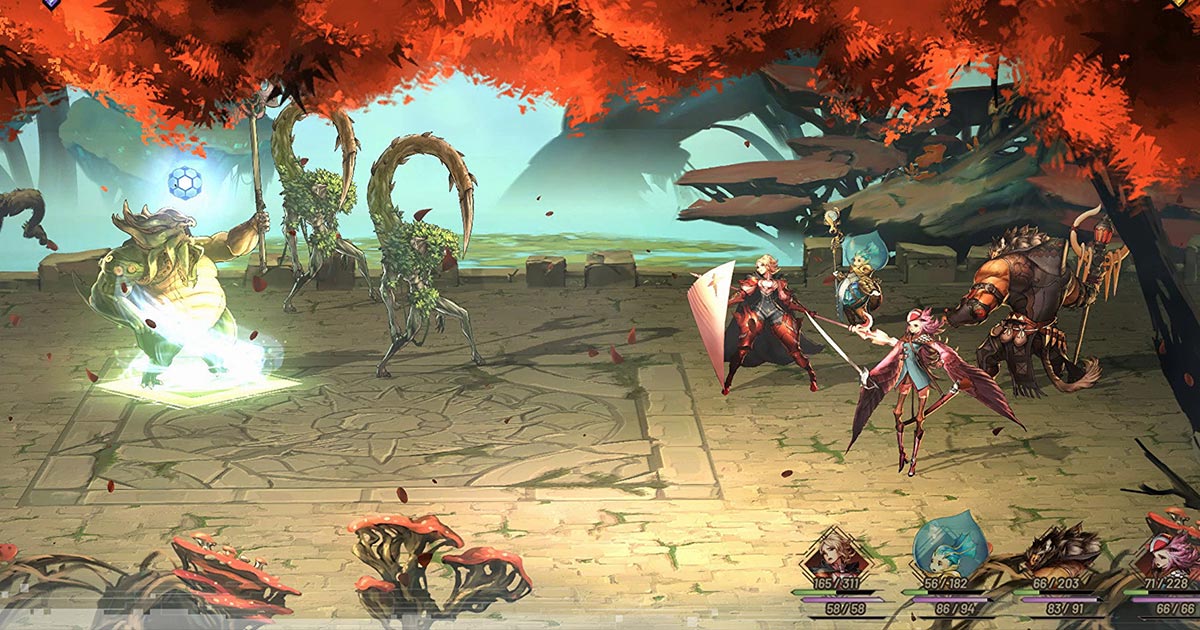
You start battles with a certain number of Focus Points (FP), which can increase or decrease depending on whether you can exploit an enemy’s elemental weakness.įailing to do (either because your foe nullified or absorbed your attack) will lower your FP count, even into the negatives.

With Focus, you can spend points to increase the efficiency of your attacks. This is part of a general design philosophy surrounding no character feeling “useless,” according to Artisan.Īnother tenet of that is the ‘Focus’ system, which is reminiscent of Bravely Default‘s ‘Brave’ system. Functionally, it plays out like Final Fantasy X, where you’re able to switch between characters on the fly. Like the Final Fantasy games it draws so heavily from, Astria Ascending has a turn-based combat system that is pretty satisfying. Interestingly, though, it’s the battles that offset many of Astria Ascending‘s shortcomings. Even the jump button to add a layer of verticality often devolves into extremely basic platforming with the occasional crumbling ledge. That wouldn’t be limiting in and of itself if the game’s 20-plus dungeons didn’t feel so copy-and-paste. Like Artisan’s last game, Super Neptunia RPG, Astria Ascending features a 2D perspective, so you can only explore levels going left and right. The excellent presentation is important, because it helps carry otherwise dull locations that you’ll be exploring. Likewise, Sakimoto doesn’t disappoint on the music front thanks to a strong orchestral score. Cydesignation has produced some lively hand-drawn artwork for the game, which absolutely pops in action. Fortunately, the characters and their surrounding environments are, at least, absolutely stunning. With more nuanced writing, this could have resulted in a compelling character arc, but what’s actually there just feels mean-spirited, particularly from the elderly thief Arpajo. And because your party is made up of both human and non-human characters, there’s a rather unsubtle depiction of racism that’s on display. The key words there are “on paper,” though, because the writing often falls flat through rote, overly expository banter and poor voice acting. “Like the Final Fantasy games it draws so heavily from, Astria Ascending has a turn-based combat system that is pretty satisfying.” On paper, the Final Fantasy XIII-esque premise is interesting, as it quickly establishes the stakes while getting you intrigued as to what the characters will do with their cursed fates. With their looming sacrifice, they have to defend the world of Orcanon from a mysterious threat.

Astria Ascending follows eight characters who have been deemed demi-gods, granting them special powers but giving them far less time to live.


 0 kommentar(er)
0 kommentar(er)
